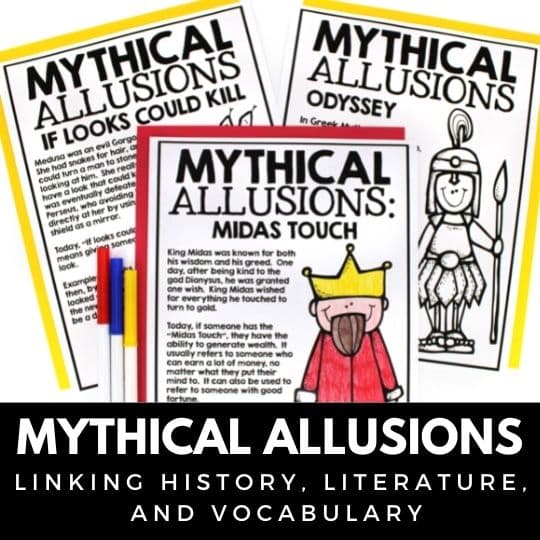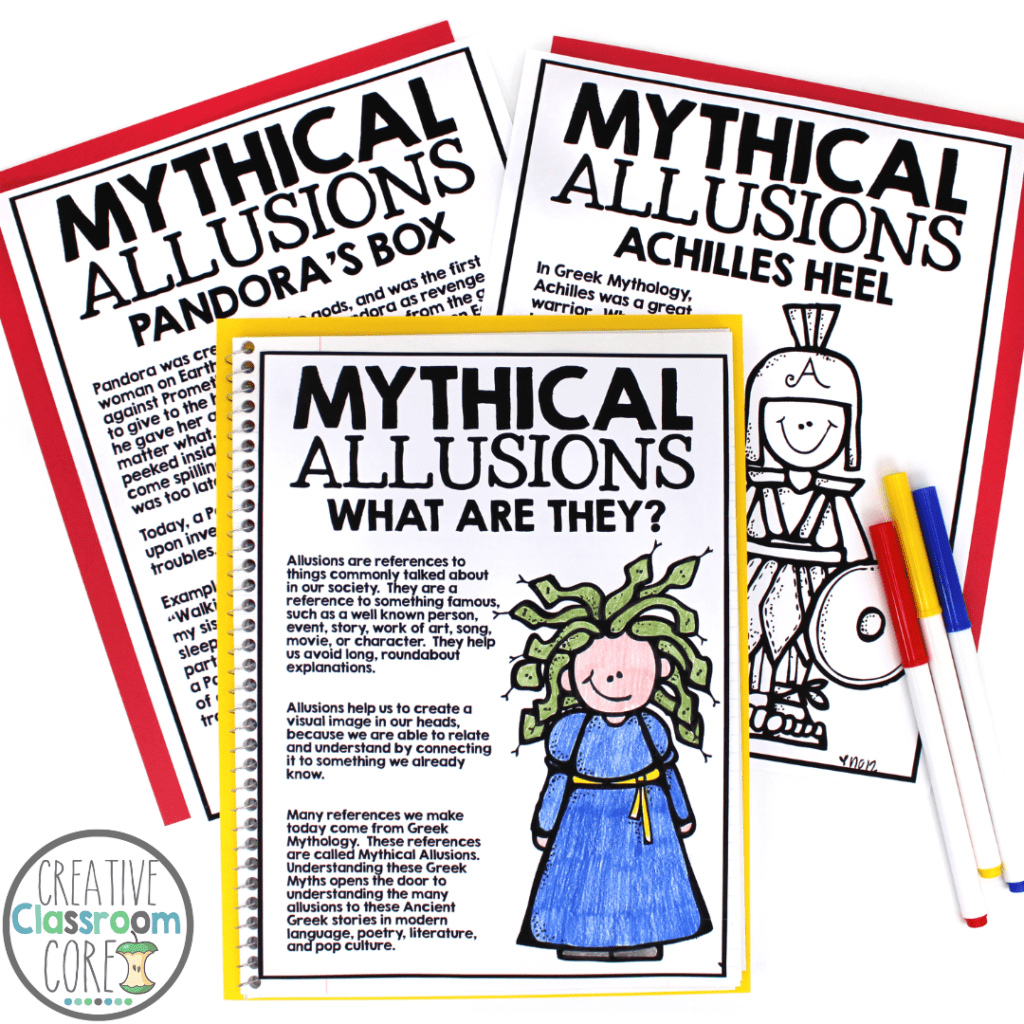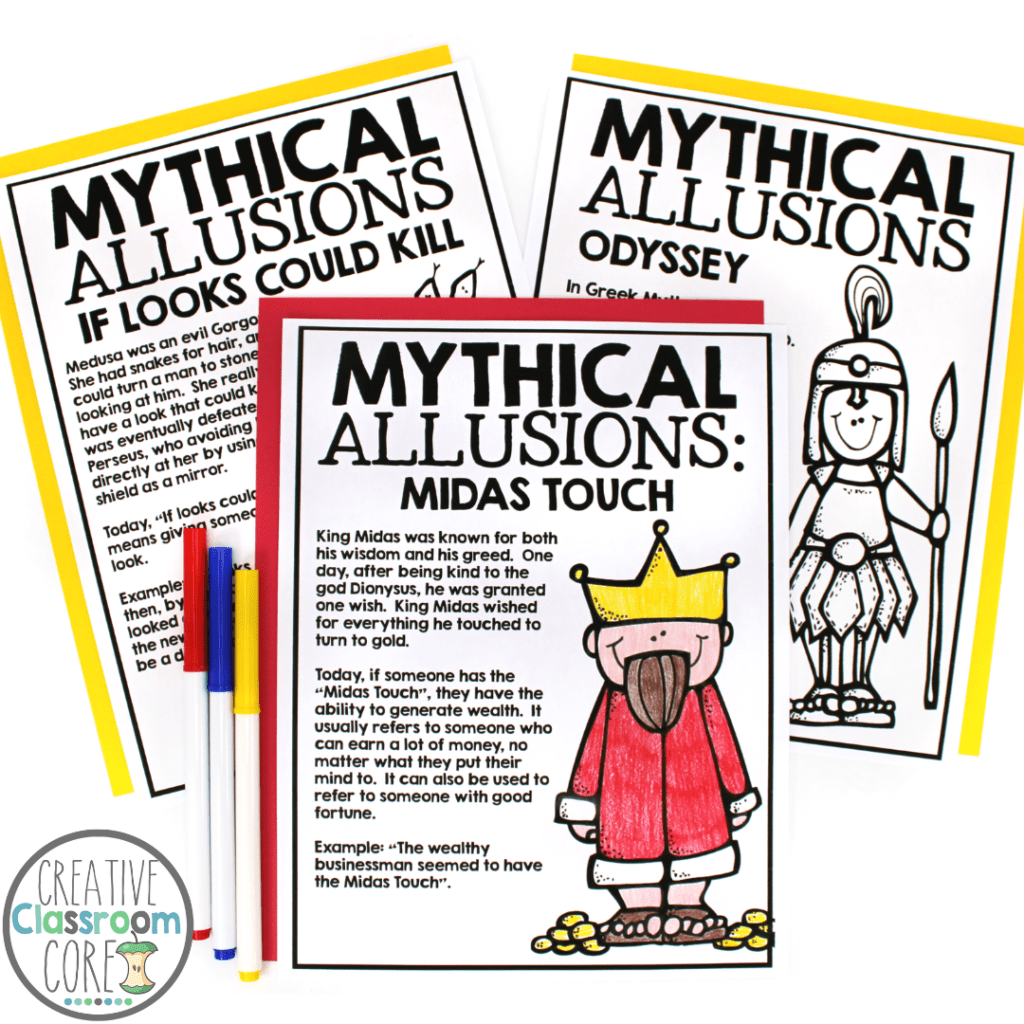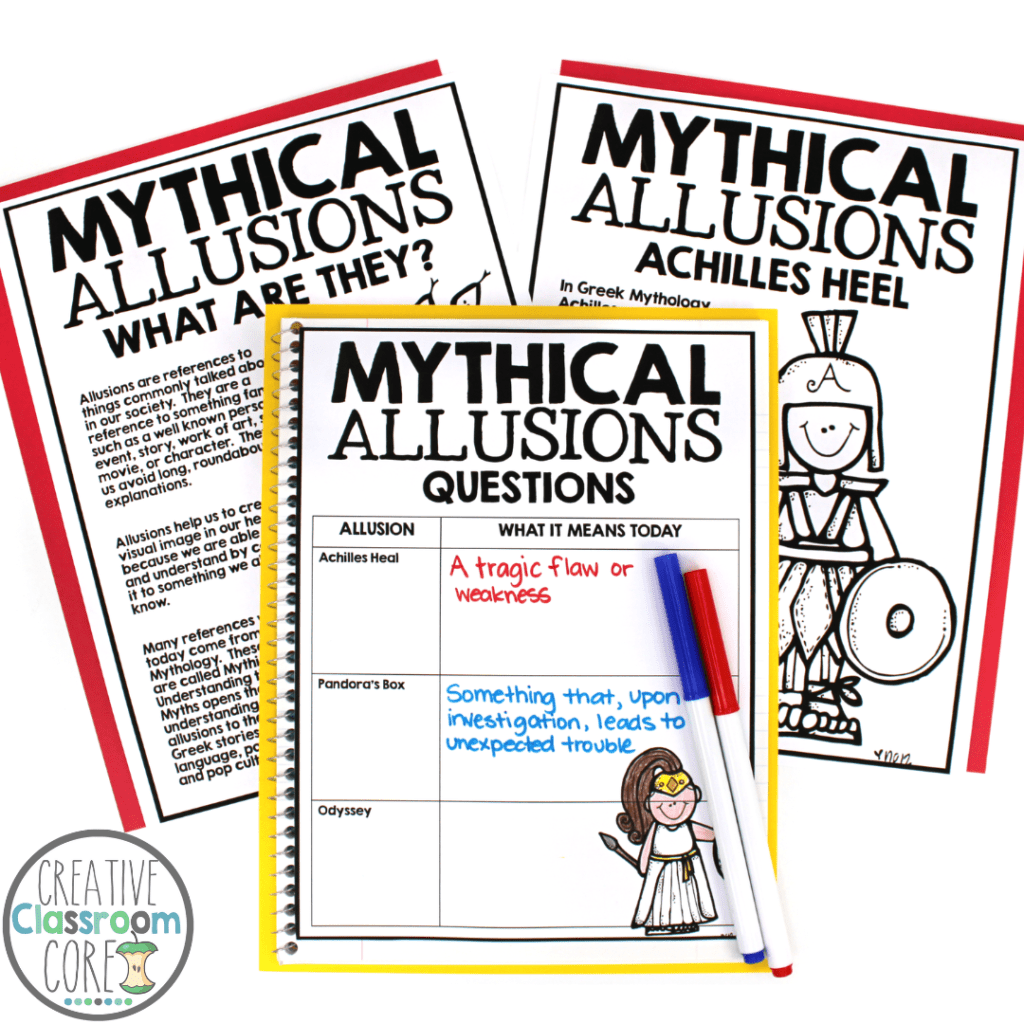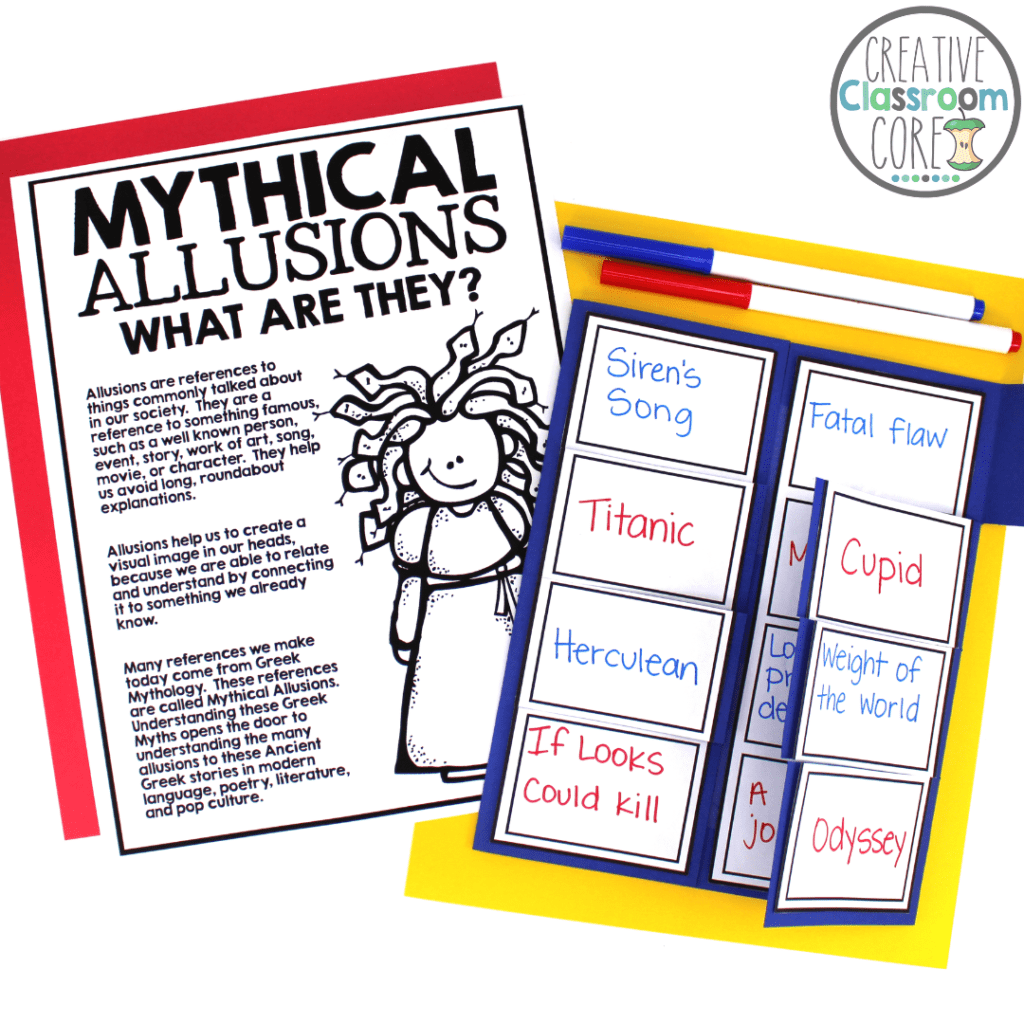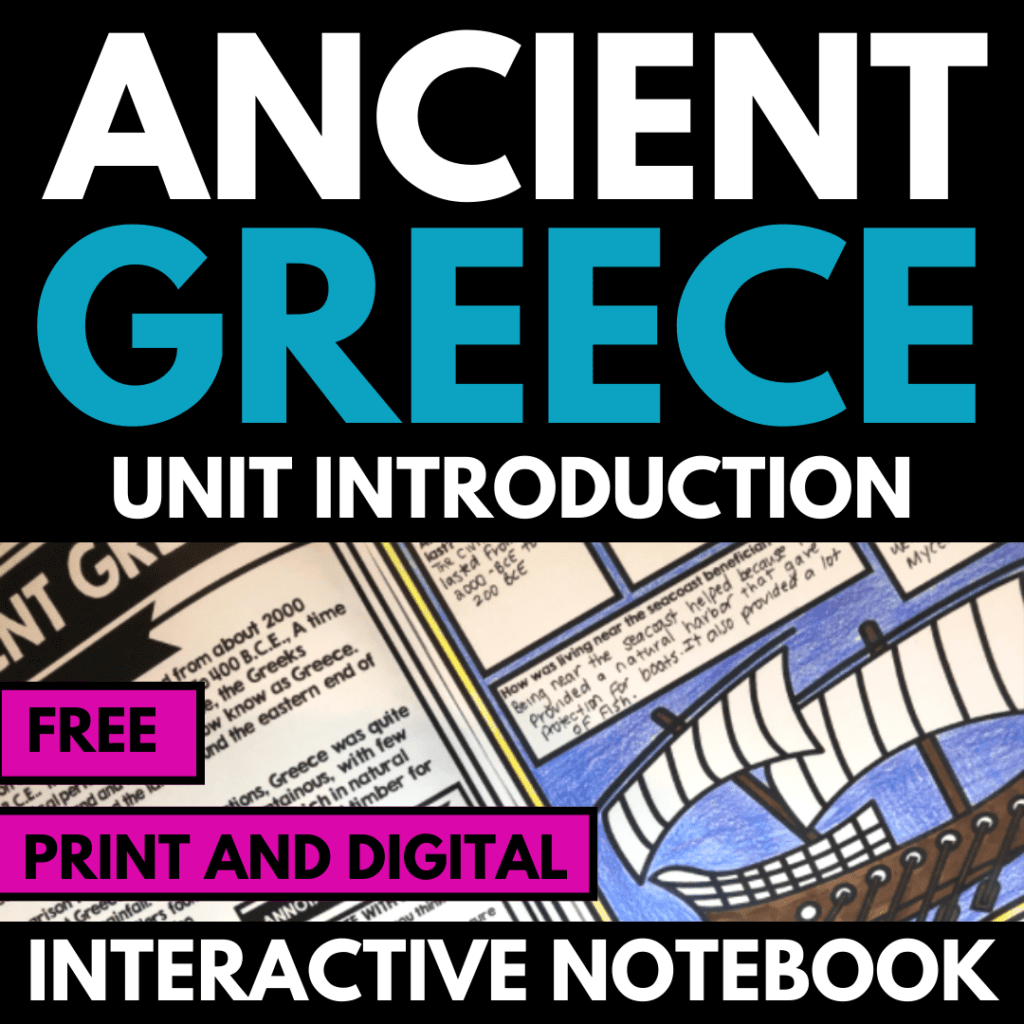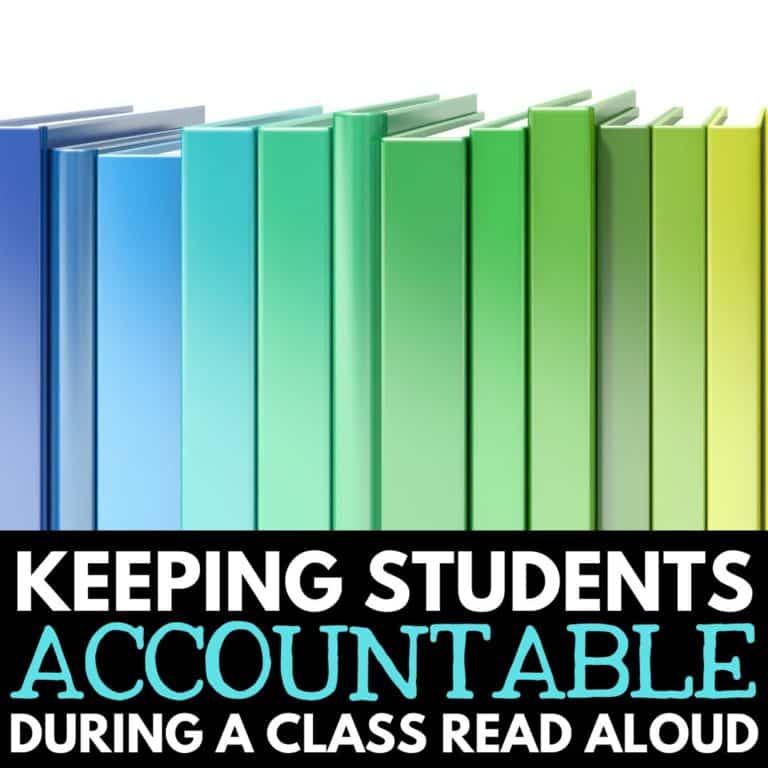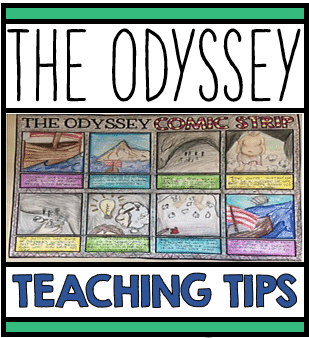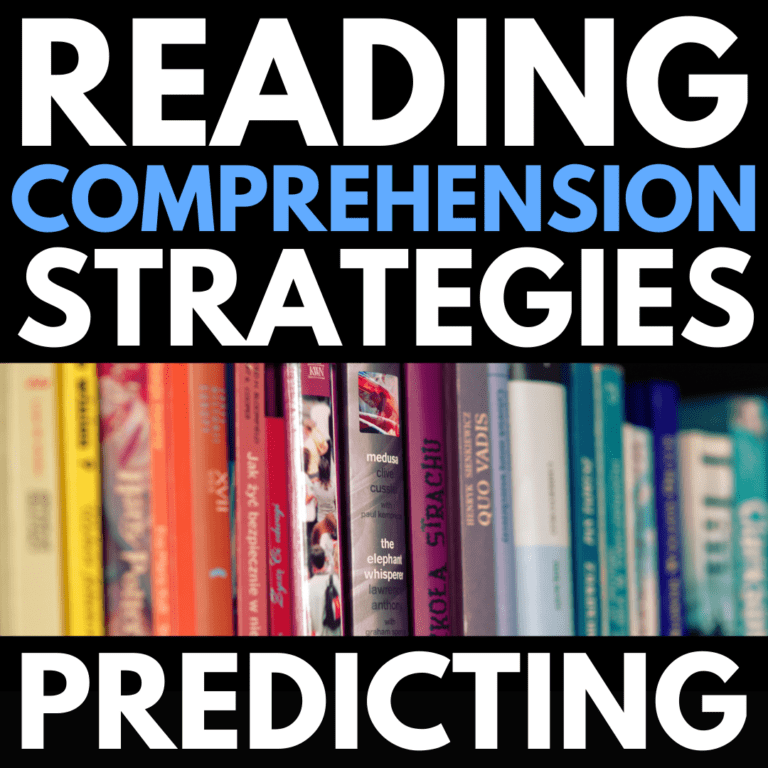Mythical Allusions To Build Student Vocabulary
By MARISSA DESPINS Updated March 21, 2024
All About Mythical Allusions
Mythical Allusions can be a tricky (but important!) topic to teach. Put simply, mythical allusions are terms that “allude” to characters or concepts from Greek Mythology. Incorporating them into your lessons can be a fantastic way to link history, literature, and vocabulary in your classroom!
If you are looking for some engaging activities to help you teach mythical allusions in your ELA classroom, be sure to click on the button or image below to see all of the resources available in my TPT shop!
Why is it important to teach Mythical Allusions?
Aside from being one of the common core standards, mythical allusions are important to teach because we are surrounded by them on a regular basis.
The language we use today is steeped in allusions. Words like echo, hypnosis, titanic, and gigantic all are rooted in the mythology of Ancient Greece.
Modern companies also use these references on the regular. This can be seen in the name selection of companies like Nike and Amazon.
When students learn the story behind the allusion, they are better able to understand and experience the meaning behind the text they are reading.
What are some examples of Mythical Allusions?
There are soooo many mythical allusions that you can use to introduce the topic with your class, many of which refer directly to key characters from Greek Mythology. I have listed some of my favorite allusions to teach below. Most of them are fairly common in our everyday language. As a result, I find that students are really engaged and excited when they learn the origins of the words that many of them use on a regular basis.
Achilles’ heel (Achilles): weakness; downfall – In the myth of Achilles, the hero’s one weak spot is his heel.
Arachnid (Arachne): arthropod or spider – In the myth of Arachne, she is turned into a spider.
Atlas (Atlas): book of maps – In the Atlas myth, he balances the world on his shoulders.
Fate (the Fates): destiny – In Greek mythology, the Fates controlled the lives of all.
Harpy (harpies): unpleasant woman – In Greek mythology, Harpies were half bird / half woman creatures that were known to be ugly and dangerous.
Herculean (Hercules): requiring strength – In the myth of Hercules, he is a very strong man who is part god.
Midas touch (Midas): ability to make money – In Greek mythology, Midas had the ability to turn anything he touched to gold.
Narcissism (Narcissus): self-love – in the Greek myth of Narcissus, he fell in love with his own reflection.
For more ways to add mythical elements to your classroom teaching, be sure to check out our post on Greek Mythology Interactive Notebooks!
Mythical Allusions Teaching Tips
This resource has been my go-to for teaching mythical allusions with my middle school and upper elementary learners for a number of years. It contains 10 different short reading passages, each featuring a different mythical allusion. Also, it includes student notetaking templates.
After taking notes, I have my students create a fun foldable activity to keep in their Interactive Notebooks. The foldable is great for review, as students can flip and cover the different allusions to help quiz themselves.
At the end of the unit, I like to put the students into small groups to brainstorm how many different mythical allusions they can come up with. I am often surprised by how many they can think of. Teenagers are exposed to music, websites, books, advertising, and video games that many adults have never heard of, and can often find allusions that we may not even know about.
Read more about this fun unit by checking out our post on Greek Mythology Activities!
Interested in testing this resource out in your own classroom?
You can grab my complete Allusions from Greek Mythology Unit by clicking here or on the image below. It contains all of the activities mentioned in this post!
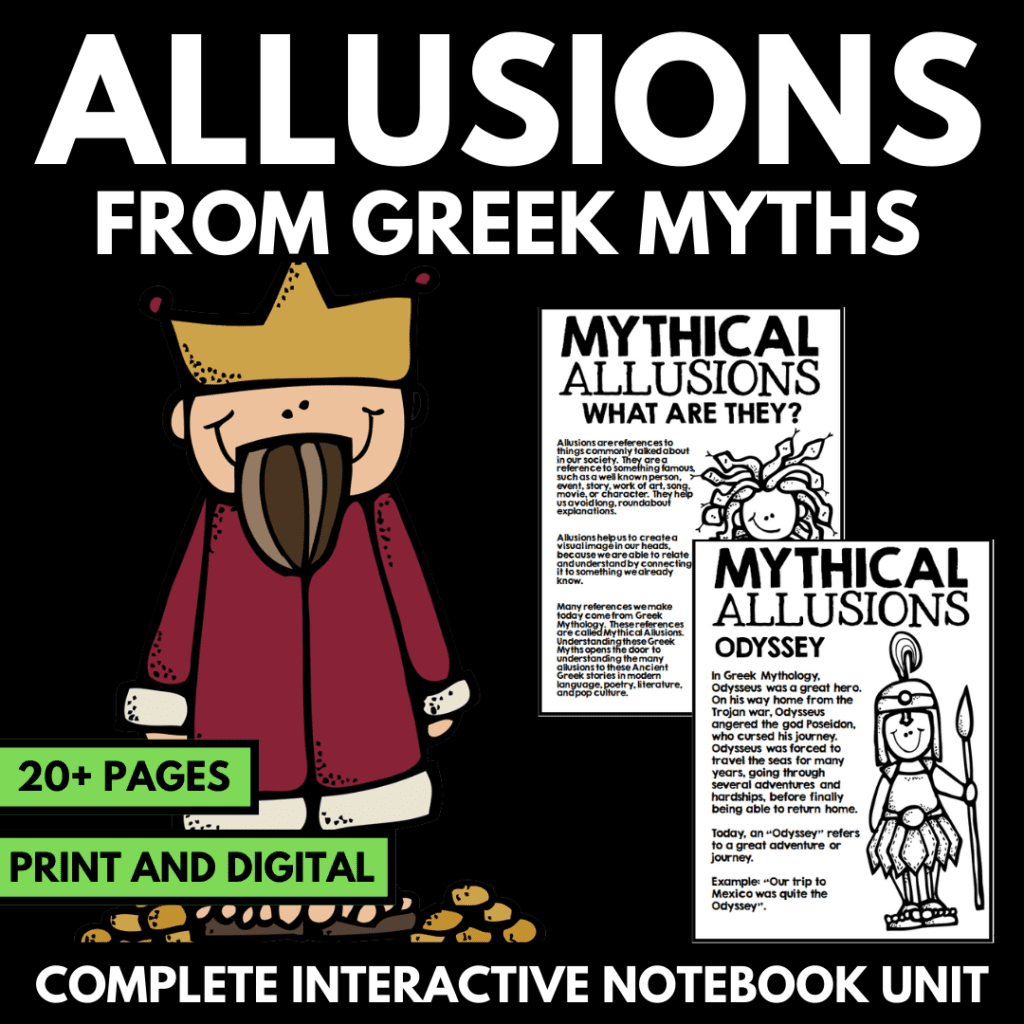
Looking for some Free Ancient Greece Resources?
You can download my complete Introduction to Ancient Greece Unit for FREE by clicking here or on the image below. It contains graphic organizers, reading passages, and activities all about Ancient Greece!
Looking for more Ancient Greece Activities and Teaching Tips?
Check out the blog posts below!
9 Essential Topics for an Ancient Greece Unit
Teaching History with Interactive Notebooks: Ancient Greece
Greek Mythology: Interactive Notebooks
Interested in signing up for my email list?
If you are interested in signing up for my email list, you can do so by clicking on the link below. I frequently send out emails with free resources, teaching tips, and exclusive deals. Also, signing up will give you immediate access to some of my best selling Interactive Notebook resources – foldable activities, graphic organizers, and other fun activities.
